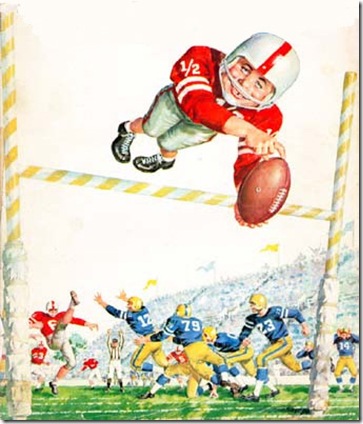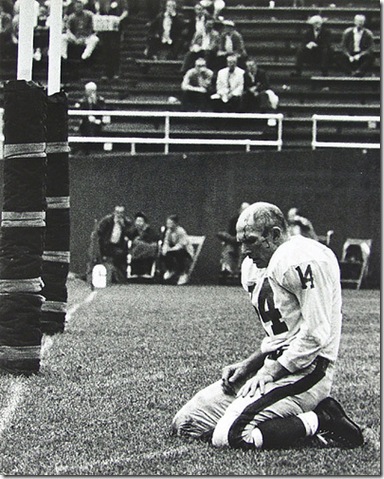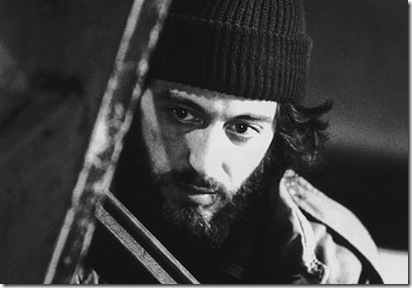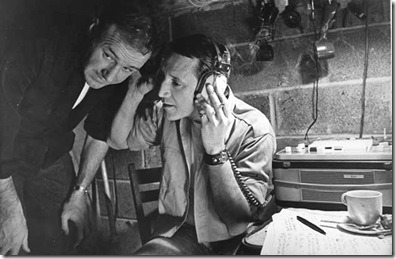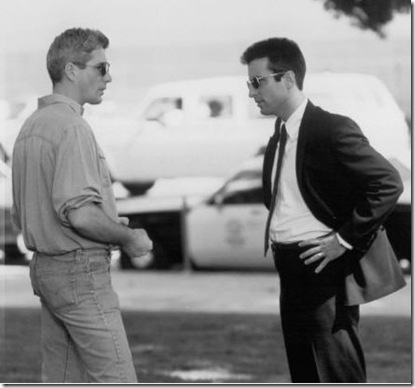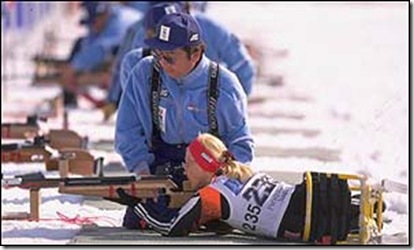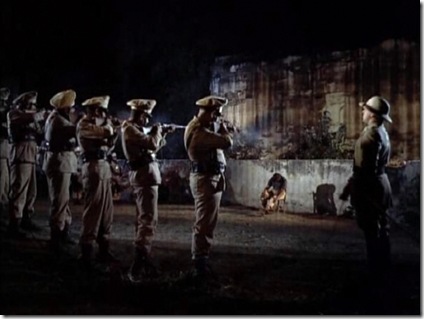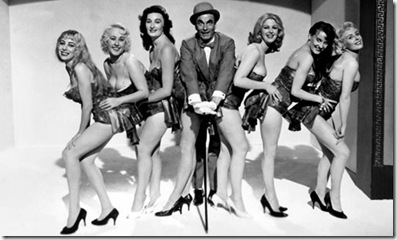A football team employs a kicker for two reasons --- to score points and to punt. If his team isn’t in a position to score or even improve its field position, the kicker punts the ball away. This gives his team the opportunity to regroup while the opposition tries to regain the yardage they lost through the punt. Often, punting the ball earns your team even greater advantage than they had before.
Last week, in rendering its long awaited “Decision” on the state of Canadian television, it’s universally agreed that the CRTC punted, issuing their ruling as a Proposal for the future of Canadian TV instead of an edict and leaving the major issue for a Federal court to decide.
But in punting, they may finally have confirmed what team they are really playing for…
Moments after the “Decision” was rendered, several intelligent industry players, including screenwriters Karen Walton and Denis McGrath, warned their various blog and Twitter followers to take into account the source of all analysis and reporting on the details. Tens of Millions of potential profits were riding on the public reaction and the major players all had media outlets spinning the results to their own advantage.
They were prescient warnings, for within moments CTV was reporting it had won the “Save Local TV” battle and John Doyle, TV critic of the network’s conglomerate newspaper, the Globe and Mail, was extolling the virtues of the decision under the title The CRTC Justifies Its Existence. A day later, he continued by scolding the CBC for complaining at being shut out of the potential financial windfall.
Not long after, Phil Lind, Vice-Chair of Rogers Communications, the country’s largest cable company, argued that, “Cable bills will rise dramatically, but the extra money won’t go to Canadian programs. It will go directly to Hollywood to underwrite CTV and Global’s efforts to win the rating wars.”
And while ACTRA predicted the death of Canadian drama, the Writers Guild of Canada and the CFTPA felt they had “been heard”.
The Proposed structure for the future of Canadian broadcasting stipulated the following major points.
1. Private Broadcasters have the right to charge fees for formerly free-to-air broadcasts on cable and satellite.
2. Private broadcasters have the right to Blackout signals for which they own Canadian rights.
3. “Programs of National Interest” replaces Priority programming and is redefined to comprise only drama and comedy, feature documentaries and Award shows.
4. 30% of network gross income must be spent on Canadian programming (5% on Programs of National Interest).
5. Total Canadian Content on Canadian networks reduced from 60% to 55%.
7. Reduced restrictions on where a network’s Canadian Production spend is exhibited. With as much as 25% movable anywhere within the conglomerate holdings.
8. CMF investment no longer counted as part of broadcaster programming spend.
Few of the industry stakeholders addressed how the proposal would affect the Public, the people the CRTC was founded to serve and has a Parliamentary mandate to protect. Even the Commissioners themselves didn’t see fit to address the audience impact until the next day, when they confidently predicted the Public would be okay with it. Rising cable fees hadn’t driven them from to turn off the TV so far, so why would the future be any different…?
Let’s start with that odd observation because the last available figures from 2006 reveal that cable/satellite subscriptions have declined from a high of roughly 77% of all Canadian homes in 1999 to below 65% in 2005. Where do those numbers come from? A CRTC report that the Commissioners obviously didn’t bother to read, but which you can find here.
Has that level of penetration declined further since 2005? Well, this isn’t that scientific a survey, but last summer I became the first guy in my neighborhood to put up an HD Antenna that brings in 32 Channels, including all the content from US networks that private Canadian networks could soon start forcing cable companies to black out. In the half hour it took me to walk my dog this morning, I counted 20 of them within a couple of blocks of my home.
Meanwhile, another report issued this week concluded that Canadians are now spending more time online than watching television, with some of that time spent accessing television style entertainment from the web.
So, I wouldn’t say Canadians are all that eager to pay increased fees to get the same level of programming or maybe even less choice. That opinion is apparently shared by Commissioner Michel Morin who issued a scathing minority report in which he stated, that the CRTC was defending "the interests of the industry to the detriment of consumers who, for their part, remain powerless."
Okay, so where does this leave us?
In my opinion --- nowhere.
Because I don’t think most of what’s been proposed will ever even come to pass.
For starters, the imposition of “value for signal” fees has to be ruled on by the courts. So, there’s a chance the revenue the broadcasters insist they need to survive will be ruled something the CRTC can’t grant them.
Without it, the broadcasters are already on record as saying they can’t continue to provide their current levels of service. And that means a lot of the percentages of gross going into Canadian programming spend will just continue to get eaten up by news and other local requirements.
And even if the courts rule the fee can be collected, there’s currently a government in power who only months ago reversed a CRTC ruling on mobile phones to encourage lower fees. And if there’s one thing that politicians know makes the electorate angry, it’s an increase in their cable bills.
If the broadcasters get over those two hurdles, they face another that nobody seems to have considered. By the time the court rules, Shaw Communications will have acquired a controlling interest in the Global network and its partner specialty channels. Shaw thinks better management practices will eliminate the need for any “value for signal’ fees. As noted above, Rogers, owner of another group of stations, feels the same.
If these two don’t charge additional fees for their programming, that leaves CTV as the lone broadcaster looking for extra money. And since you can get CTV in almost any major market with an HD antenna or even rabbit ears, how many people are going to happily pay that extra fee?
Bill Brioux, a TV analyst utterly opposed to the imposition of such fees from the get-go, currently has a poll on his site which (as of this morning) indicates 43% of respondents won’t countenance any “value for signal” fees and another 24% who’d unplug from cable if their bill goes up by more than $10. Those living in Ontario may or may not be aware that their cable bills are already increasing by 8% with the introduction of the HST Tax on July 1.
It would appear we’re rapidly approaching a point where many will be looking at alternatives to continuing to pay for the lacklustre service re-broadcasters like CTV provide.
Unlike most of the CTV or CanWest friendly newspapers that played up the CRTC press release of last week on the $116 Million “losses” our free to air broadcasters suffered last year (perhaps softening us up for the “Decision”), Brioux reminded his readers that half of that “loss” could be ascribed to CTV overbidding for the 2010 and 2012 Olympics, with the rest accounted for by increased spending on American programming and the relentless “Save Local TV” Ad campaign.
So far the best line on this whole issue also comes from Brioux, “The CRTC is defending the right of Canadian Broadcasters to black out ‘Gossip Girl’!”
In other words a Canadian regulator is making sure a Hollywood studio continues to earn a foreign sale of its programming.
And here’s my question on both the blackout issue and the few Canadian shows I now get from our private broadcasters…
Will they also black out the online version that goes up a few hours after the terrestrial broadcast?
And more important --- if CTV wants me to pay an additional $1 a month to watch “Hiccups”, “Dan For Mayor” and “The Bridge” does that mean I have to pay to see them online as well? Or will there be some kind of two-tier system whereby CTV subscribers get the online version free and others do not?
How’d you like to be the IT guy or lawyer navigating that broadcaster/cable/rights holder swamp --- a swamp that got even more complicated with new CMF rules that won’t fund TV shows that don’t have a significant online component.
How do you tell taxpayers they funded your show and the web presence and they still have to pay some more to access it?
Can you not see more and more people actively looking for alternatives to a cable or satellite feed…?
Luckily, the Google/Sony box will be available about 4 months before any of this can even be put into effect.
All of which kind of makes the rules on Cancon, shows of National interest and how it all gets paid for close to moot.
But to touch on them briefly…
As referenced in the post from last Friday --- can someone please explain why our broadcasters can exhibit their Canadian programming over any part of their broadcast systems, but don’t have to include those same enormously profitable Specialty channels in any calculation to determine whether they needed “value for signal” fees in the first place?
And what’s with Award shows being classed as “Programs of National Interest”? Except for the Juno Awards, the Much Music Awards and maybe the Canadian Country Music Association soiree, our award broadcasts elicit a resounding National Disinterest. Why show support for drama and not the arts which the successful Award shows celebrate like Music and Variety?
Or are Award shows tucked in there so Ben Mulroney’s Red carpet interviews still qualify? And could that be expanded when all of this gets re-argued at the Fall license renewal hearings so our nets get to keep the cheap Gossip magazine shows that can deliver more of that 5% spend in-house.
While others may make the case that the reduced total Cancon requirement and deduction of CMF investment still means the nets will spend more on their Canadian shows, the industry seems to be voting otherwise.
Days after the new proposals were released, CORE Digital declared bankruptcy and laid off 150 staff. Children’s producer Cookie Jar downsized by another 35, while other companies further diminish or merge to survive. In Saskatchewan, the SCN network announced it will be going dark permanently, eliminating one more domestic market.
Cancon Production was down by 12% last year. And since these new proposals don’t become concrete for another year and after the next round of license renewals, we have no more industry stability than we had before they were announced.
Indeed the private networks are already re-iterating their demand for new money in order to make the 2011 deadline for converting the nation to digital transmission. The Federal Government has already said that won’t come from them. Nor will whatever is required to convert to 3D broadcasting which debuts in much of the rest of the world this summer.
Can you not envision the CRTC knuckling to broadcaster needs once more this Fall when the threat to close more stations will not revolve around local news but HD signals and the only way the deadline can be met will be by reducing that 30% of gross to 20 or maybe even 15 and that 5% to 3 or the 2% its hovered near for the past decade.
If the courts and federal government don’t rule in favor of “value for signal” fees or there is a consumer backlash to elevated cable bills, you know the broadcasters will once again get whatever they want.
And this proposal, which is not a final decision, is their way of getting the punted ball back. Proving, to me at least, that the CRTC has been playing for them all along and not the rest of those involved in the industry, be they creators or the viewing public.
When the kicker for a football team loses his kicking foot he’s either fired or traded away. The same should be true for a regulatory commission who either can’t or won’t adhere to their Parliamentary mandate.
It’s time for Federal Heritage Minister James Moore to either fire or trade Konrad von Finckenstein and the rest of the CRTC Commissioners. They were appointed to serve the Public but have repeatedly chosen to play for a different team. Our industry can’t survive their continual broadcaster favoritism and the endless uncertainty that creates within the industry.
It’s time for a change.
